Want to switch in a moisturiser with SPF for summer? These are our tried-and-tested reviews of the top 9 buys
Plus, dermatologists and skin experts explain how to make sure your skin is adequately protected when using one

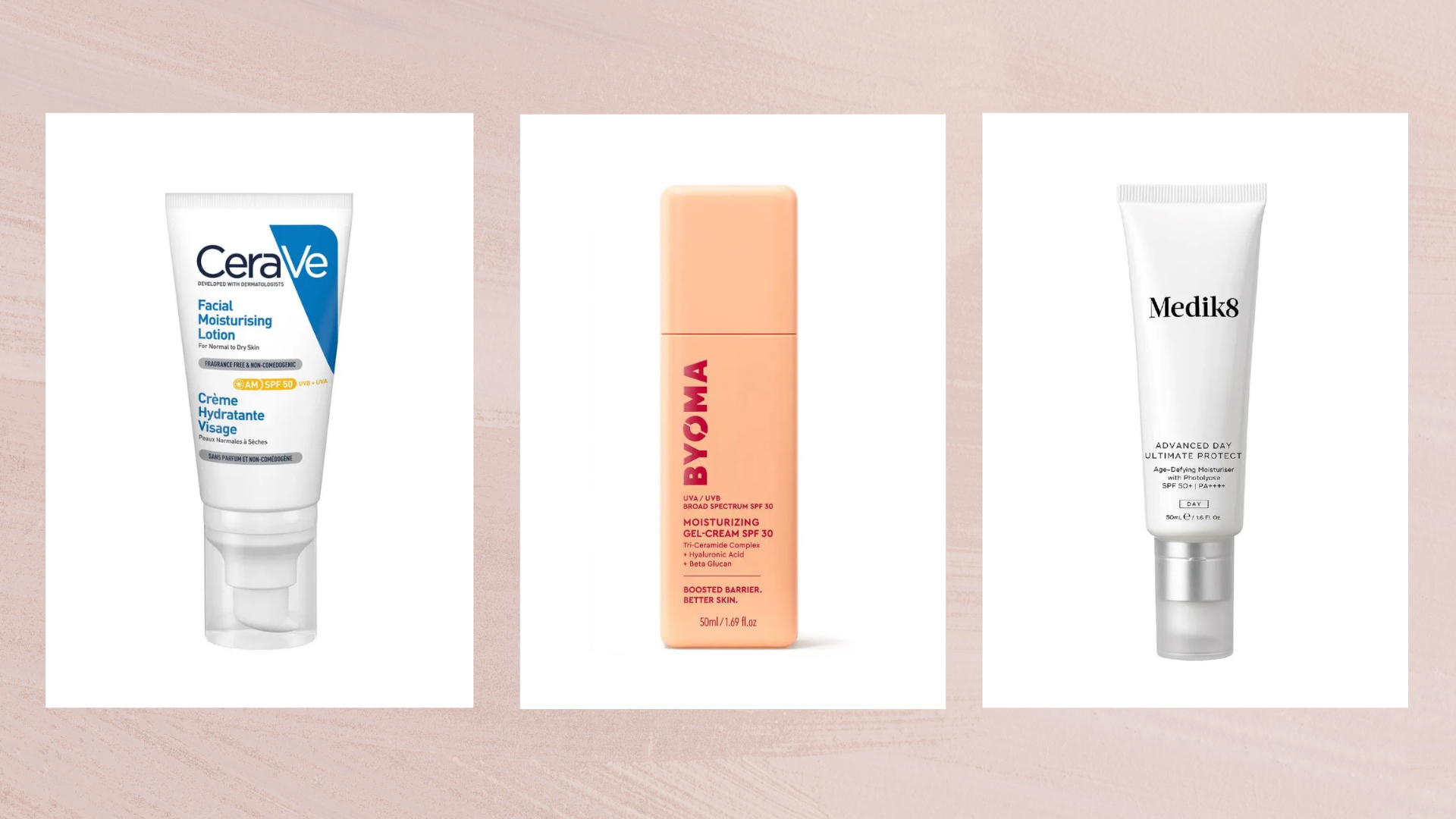
You're likely aware that applying daily sun protection should be a non-negotiable part of your routine, so it makes sense to opt for a formula that includes SPF, too – which is where the best moisturisers with SPF come in. These marry some UV protection with those hydrating and nourishing benefits we know and love in our face cream.
Any dermatologist or skin expert will tell you that the best facial sunscreen is a foundational skin step. “Sunscreen is the one universal item that every dermatologist will agree needs to be part of your daily skincare routine,” explains consultant dermatologist Dr Anjali Mahto, founder of Self London. “Firstly, sunscreen use will reduce your risk of skin cancer. Secondly, the sun’s rays are responsible for about 80-90% of the features we associate with ageing.”
While people have “SPF was traditionally a functional product meant to protect your skin from cancer and the developers didn’t really think about how it was applied in context to a daily routine,” says Ava Matthews, co-founder of Ultra Violette. “This has really changed in the last three to five years and recent developments in SPF technology mean more lightweight formulations.”
Though it's better than no protection at all, an SPF moisturiser shouldn't replace sun cream (more on that later). But it's a great way to fortify your facial sunscreen with "bonus" protection and, depending on the formula, it can go a long way toward keeping fine lines, wrinkles, loss of firmness, and pigmentation at bay, too. After much thorough testing, here are our reviews of those we deem the best.
The best face moisturisers with SPF, reviewed by our beauty experts

RRP: £16.50 for 52ml
Don’t be fooled by the no-frills packaging, as this is an impressive multi-tasker. A blend of three ceramides keeps even the most sensitive, driest complexions happy, while broad-spectrum protection shields skin from UVA and UVB rays.
As well as cermides, this product contains hyaluronic acid, helping the skin retain water to ensure maximum hydration. We found that the cream spreads easily and leaves behind a smooth finish. However, we did find that it left a touch of chalkiness on deeper skin tones. But for its price, moisture-boosting, and texture, this fragrance-free AM moisturiser is an otherwise safe bet all year round.
Buy if: You want something dermatologists recommend
Avoid if: You want something "luxe" or have an oilier complexion
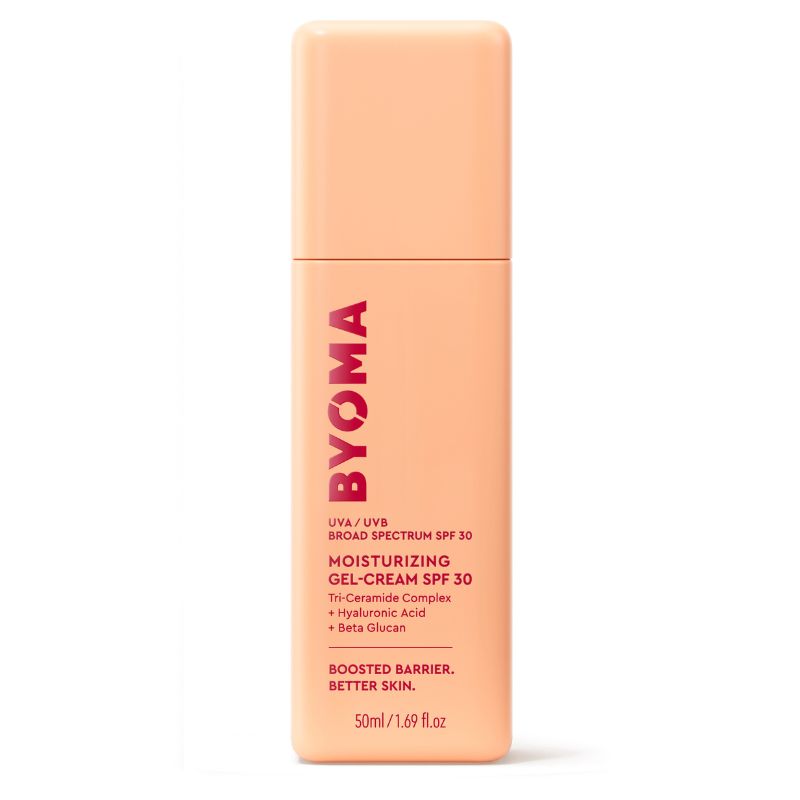
RRP: £15 for 50ml
If you see this on the shelf, pick it up, pronto. It’s been such a sell-out success for the brand since its launch that they’re struggling to keep up with demand. Why is it so popular? From our point of view, what we love most is the texture. Half gel, half cream, it’s the kind of lightweight, easily-absorbed formula that thirsty skin laps up and leaves your skin dewy and glowy, rather than slick and greasy. There’s absolutely no white cast either, so it’s suitable for all skin tones.
Alongside sunscreen filters the key ingredients in the formula are hyaluronic acid and beta-glucan, which are there to hydrate the skin, as well as the brand’s Tri-Ceramide Complex that works to lock this newly-acquired moisture in the skin. We think everyone will love this, but if you normally avoid SPF for fear it’s too heavy for you, this will absolutely change your mind.
Buy if: You want a lightweight gel-cream that absorbs easily
Avoid if: You want SPF 50 (this is only factor 30); you need something nourishing for very dry skin
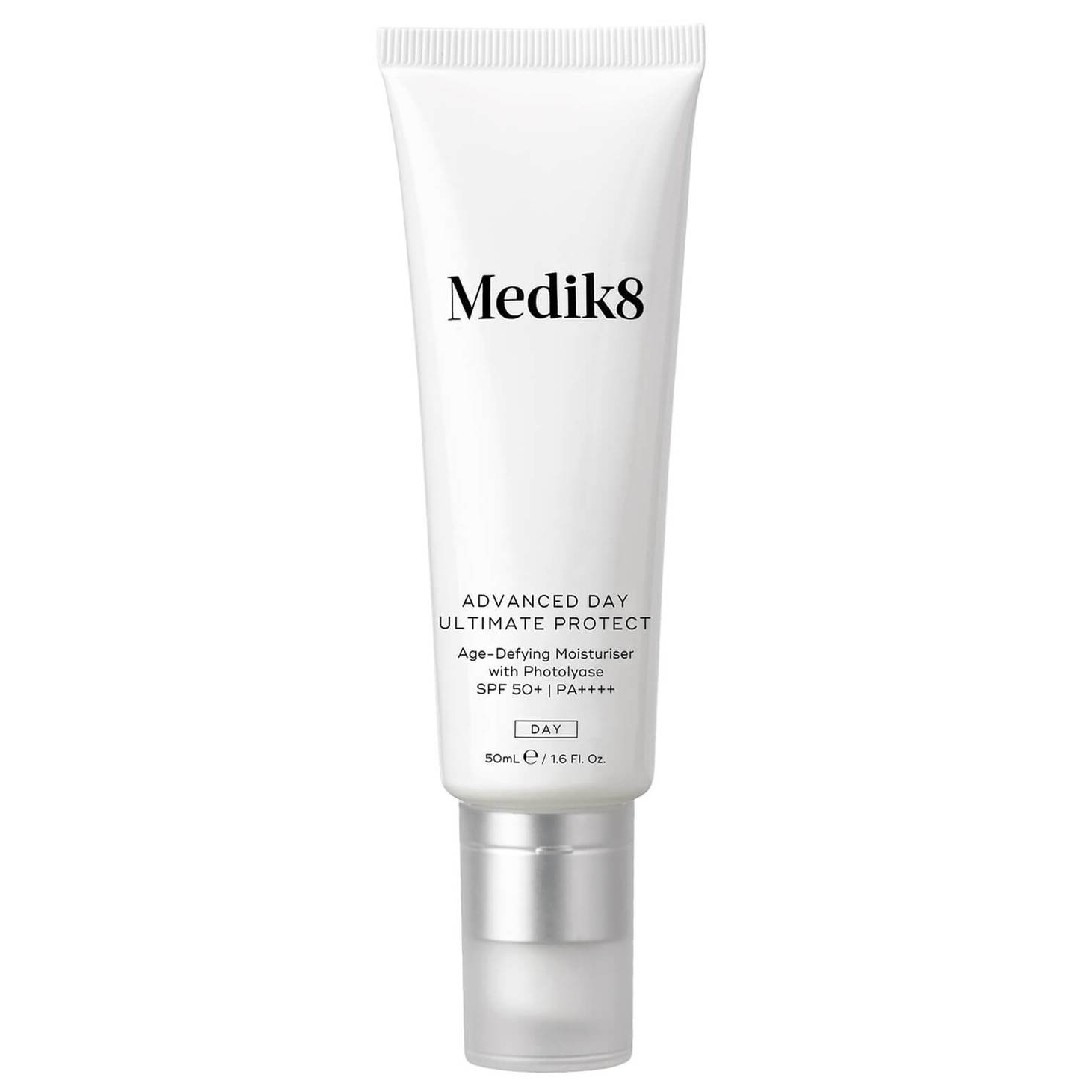
RRP: £59 for 50ml
Is there anything Medik8 can’t do well? We think not. Home to some of the best toners, retinals, and spot treatments around – the brand’s extensive range is loved by all. And this product – a face moisturizer with SPF – does not disappoint. The lightweight day cream, featuring broad spectrum SPF 50, sinks into the skin quickly to deliver a veil of nourishing protection.
Inside, the formula contains something called carnosine, which helps prevent signs of aging, as well as blueberry seed oil to protect against blue light (HEVL) and marrubium vulgare extract to ward off environmental aggressors. We found that it absorbs fast, feels ultra-comfortable, and sits so well under makeup. There’s also no white cast left behind, a big tick.
Buy if: You want something to support ageing skin
Avoid if: You're on a limited budget; this is pricey
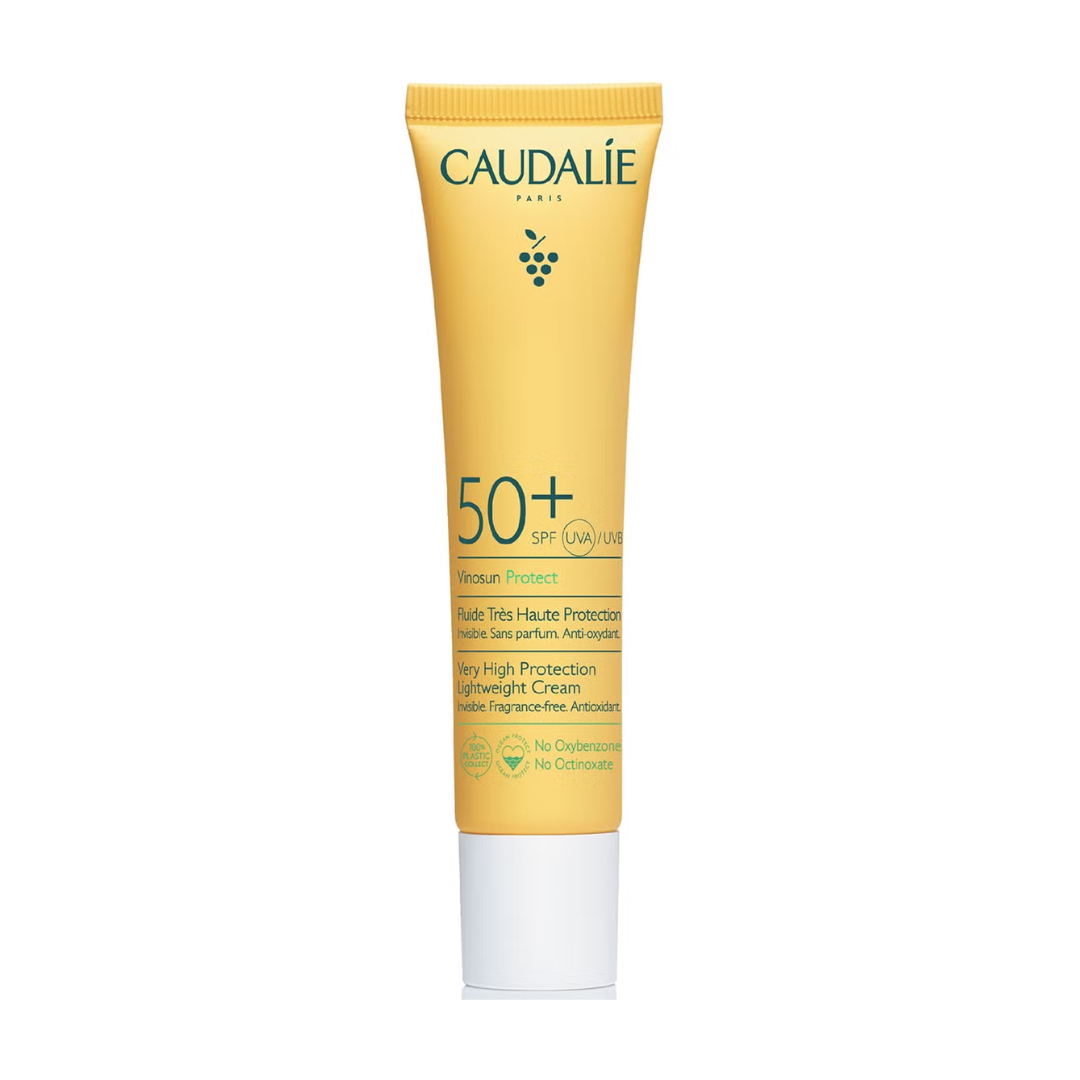
RRP: £25 for 40ml
This face moisturiser with SPF from French skincare brand Caudalie ticks a lot of our ‘must-have’ boxes. First of all, it’s fragrance-free which is a must for those following a skincare routine for sensitive skin. Secondly, the texture is lightweight – a little like a milk – which means it melts effortlessly into skin without leaving behind a sticky or greasy residue. Thirdly, it doesn’t leave a white cast which is essential for darker skin tones. And finally, it nourishes and treats skin with vitamin E and spruce extract.
The only downside? We did find that the fluid has an unusual (and somewhat unpleasant) scent when you first apply it onto skin. But, thankfully, we found that the smell gradually disappeared over the day. Overall, if you can get past the smell, we would highly recommend this pick for everyday use.
Buy if: You want a high-factor cream that works on sensitive skin
Avoid if: You like fragranced products
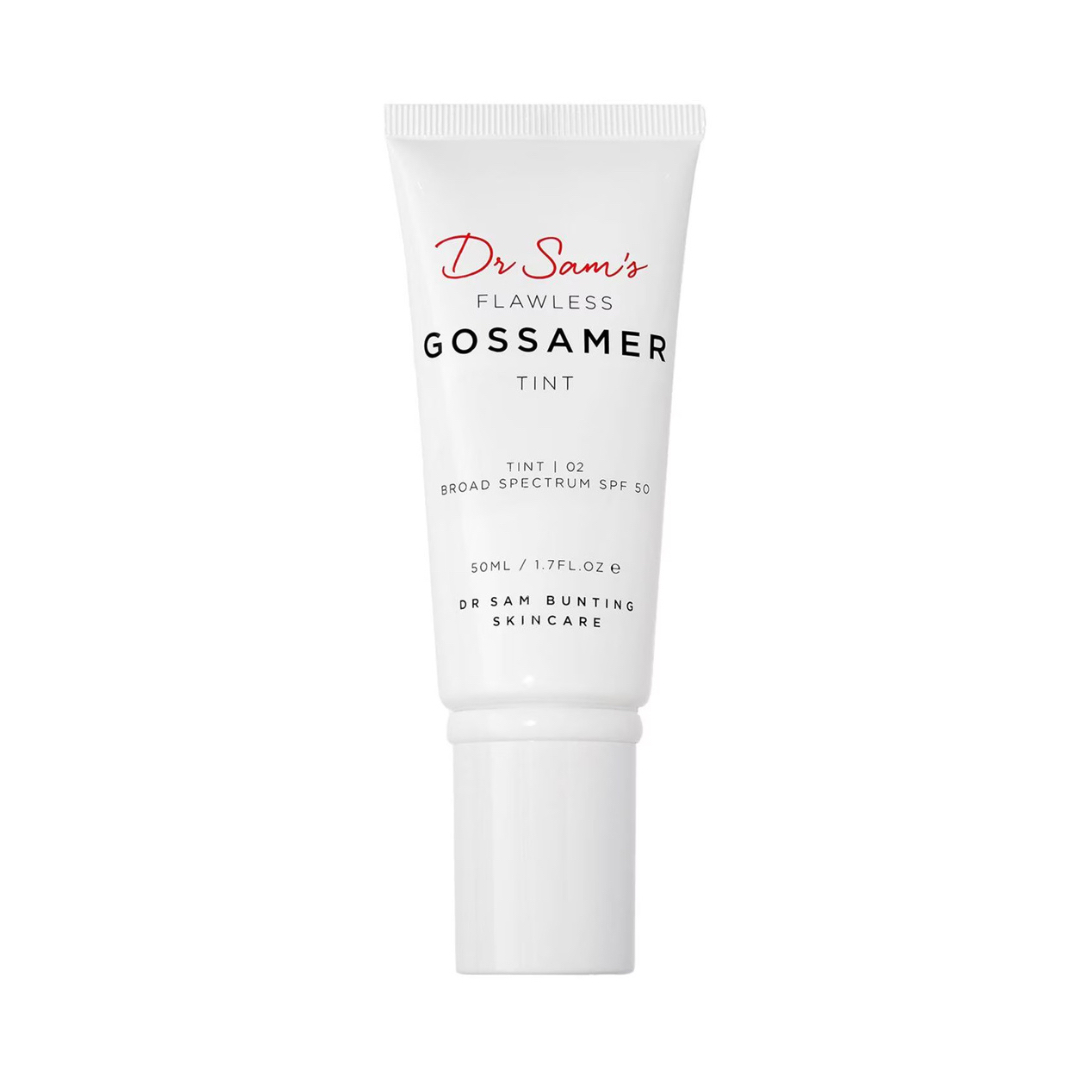
RRP: £35 for 50ml
If you’re yet to dry Dr Sam’s products, let us introduce you to the range with this skin-loving face moisturiser with SPF. A daily essential, this weightless cream will easily slip into your skincare routine and can even replace your current moisturizer. As well as effective UVA and UVB filters, the formula contains hydrating sodium hyaluronate (a derivative of hyaluronic acid), nourishing squalene and moisturising shea butter.
After testing this product for a few days, we saw that skin looked healthier and happier with a glowing radiance that we normally only achieve with the best highlighters. We also love the fact that it’s fragrance-free, non-comedogenic and behaves well with makeup. A great all-rounder, we would highly recommend this product to everyone, especially those with sensitive skins. Our only complaint is that the pump can sometimes get stuck.
Buy if: You want a lightweight-yet-nourishing cream
Avoid if: You need more of a bargain for repurchasing reasons
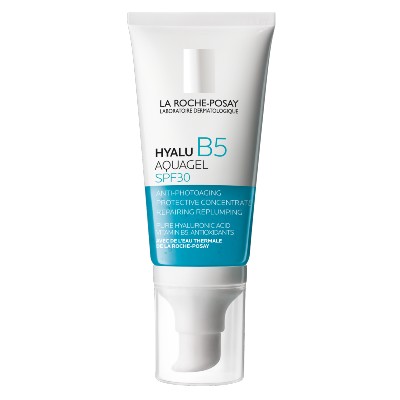
RRP: £40 for 50ml
Treading the line between SPF and skincare, this is a must-try face moisturiser with SPF if your skin is on the dry side. The addition of hydration hero, hyaluronic acid, makes for a fresh feeling formula that leaves skin plump and dewy. We loved the gel texture when we tried it on our hot, puffy morning skin. it would definitely make a great choice for anyone with oily or combination skin who finds traditional creams feel suffocating.
Containing vitamin B5 and antioxidants, this formula prompts the skin's repairing process to restore damaged skin cells. Well also found that it's fast-absorbing, refreshing, and bolsters radiance while keeping our skin protected from the sun.
Buy if: You want something very hydrating
Avoid if: You have oily skin; can feel tacky on these skin types
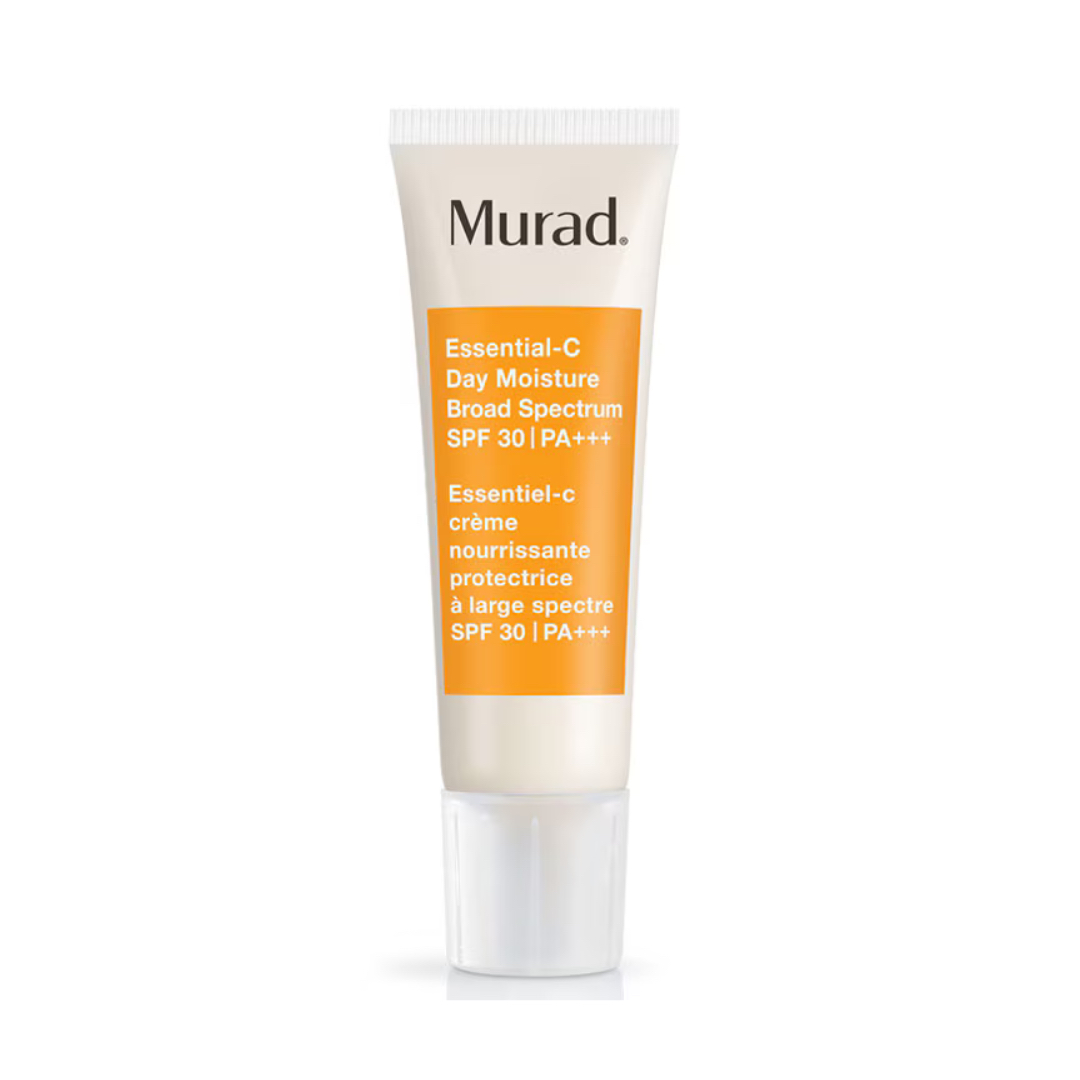
RRP: £69 for 50ml
One of the most-asked SPF questions is how other skincare actives play with UV filters, and in the case of Vitamin C, the answer is very nicely indeed. SPF keeps the sun's rays at bay, while antioxidant vitamin C does more hard graft. It'll shield skin from free radicals, kick-start collagen production, and brighten lackluster complexions.
This chemical sunscreen moisturiser contains active ingredients that expel UV rays from your skin by converting them into heat, with broad-spectrum protection to shield your skin from any UVA damage. On testing, we loved the summery fragrance and light texture, although as a chemical SPF, it may not be suitable for those with very sensitive eyes. Mineral formulas can be better for this: for more, head to our guide on mineral vs chemical sunscreens.
Buy if: You want extra antioxidant benefits alongside SPF
Avoid if: You don't have a big budget; this is pricey for the size
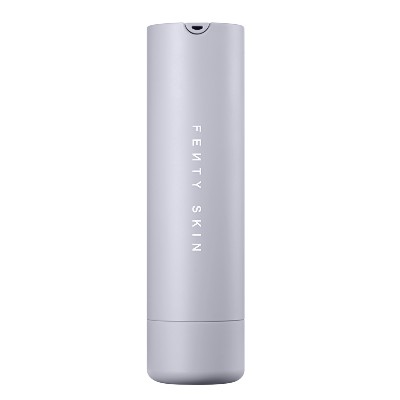
RRP: £35 for 50ml
Wearing face moisturiser with SPF won't feel like a chore when the formula is as silky as this. This cruelty-free product from Rihanna's skincare line, Fenty Skin, contains skincare ingredients like glycerin to help nourish the skin, plus hyaluronic acid to hinder dehydration. Meanwhile the niacinamide in the formula goes some way to protects the skin from discolouration and dark spots.
All that said, we believe that the best thing about this cream is its texture. During the testing process, we found it to be silky-smooth and so easily absorbed, making it an ideal SPF moisturiser to wear under makeup. Plus, the subtle, rose-tinted finish is a nice touch for tired faces, while the outer packaging is refillable. Bravo, Fenty.
Buy if: You want something completely transparent that works well under makeup
Avoid if: Formula can interfere with oily skin
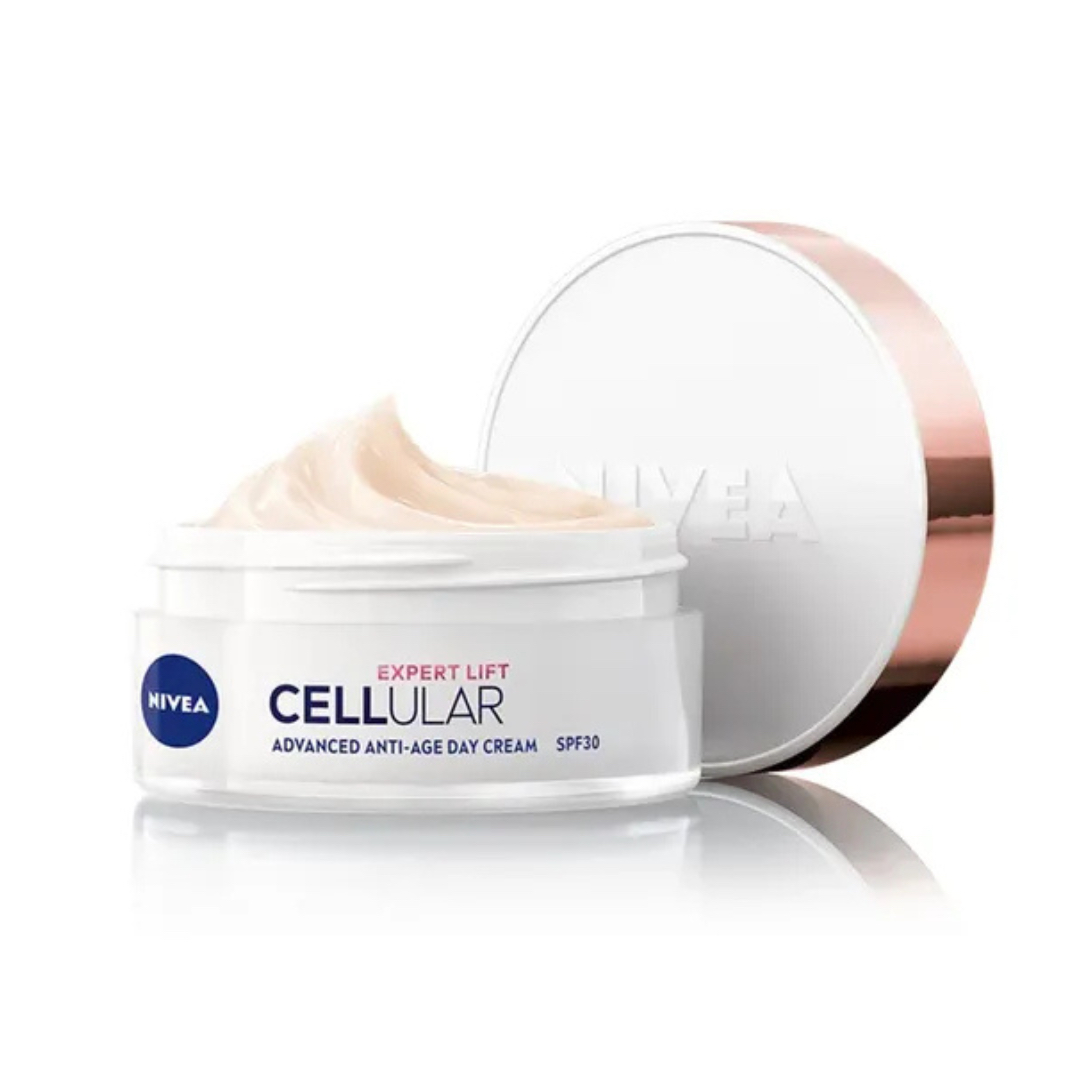
RRP: £22.50 for 50ml
This ultra-hydrating Nivea moisturiser prevents skin damage and prompts cell repair, restoring your skin whilst hindering the development of fine lines and wrinkles. It does this with a combination of ingredients, such as natural "retinol alternative" bakuchiol, which helps speed up cell turnover to strengthen the elasticity of the skin. It also contains two forms of hyaluronic acid (micro and macro) to reach different levels of the skin for ultimate hydration. Plus, of course, it's got SPF 30.
The texture of this cream is just light enough for the day, but perhaps a little closer to a rich traditional moisturiser than some others on this list, so may be better for drier types. During the testing process, we loved how instantly nourishing it felt, adding plumpness and softness to our skin, while also protecting it. While it may be a little too heavy for oily skin types, the creamy formula is the perfect option for those with dry skin who want to combat environmental aggressors.
Buy if: You want fairly light nourishment for the daytime
Avoid if: You want very high protection; this is only factor 30
How we tested the face moisturizers with SPF
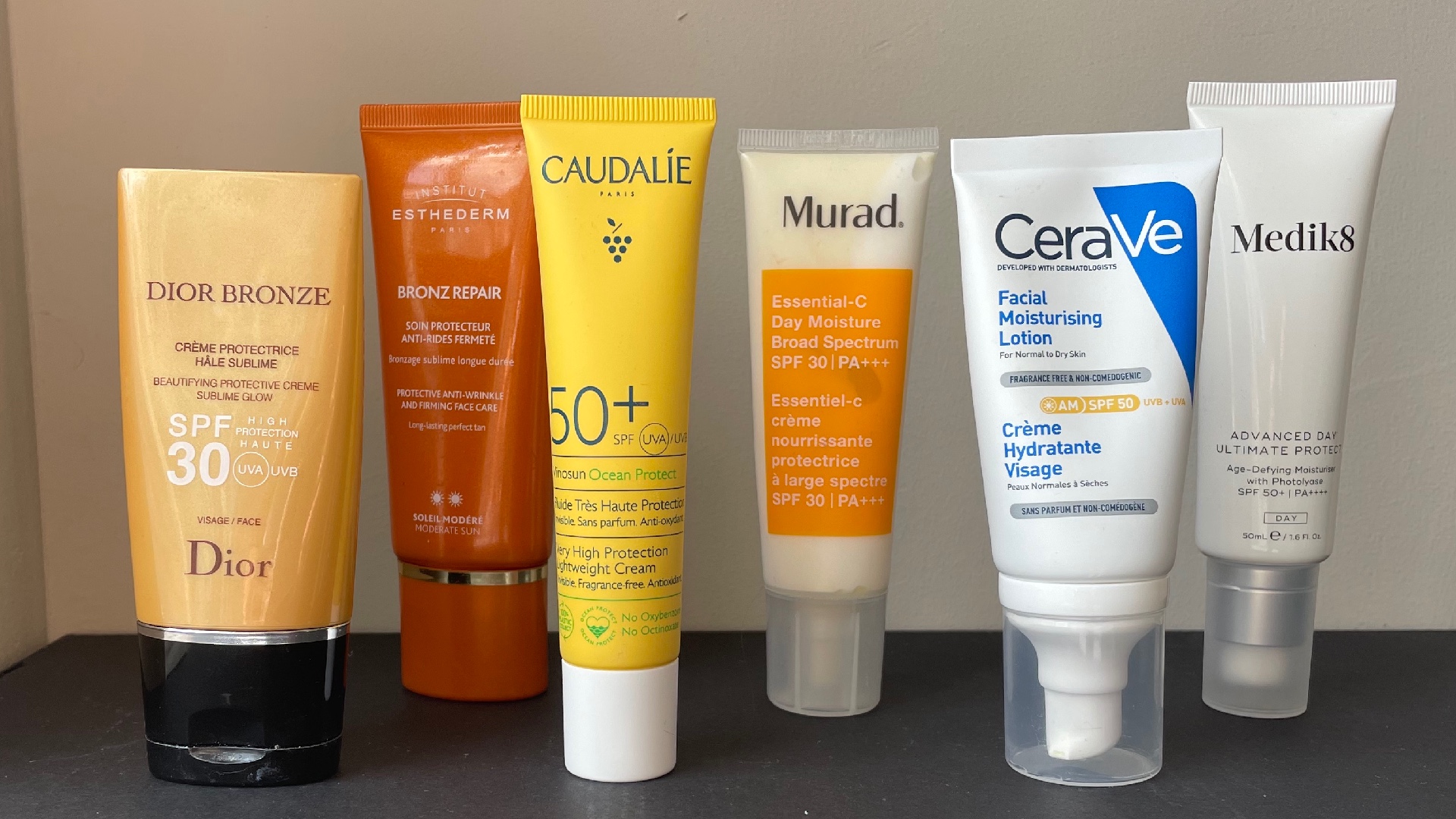
With lots more face moisturisers containing SPF landing on the market, we tested a wide range to ensure our final selection was a comprehensive edit of truly the best buys. To make a fair judgment, we tested the products on different skin types and different skin tones. As experts recommended wearing products with an SPF of at least 30, we only included moisturisers whose protection is factor 30 or higher.
- Price: More expensive doesn't necessarily mean a better product, so we assessed if a formula had good value for money based on its performance.
- Packaging: We assessed the look of the packaging, the ease of dispensation and overall user experience.
- How it looked on the skin: We examined if these moisturisers with SPF looked greasy, chalky or left any level of white cast on our testers.
- Comfortability of wear
- How well it sat under makeup
- Active ingredients: As well as sun protection, we assessed any additional beneficial ingredients, from hydrating hyaluronic acid to antioxidants
How to choose the best facial moisturiser with SPF
There are a number of different factors to consider when selecting the best facial moisturiser with SPF for you.
- SPF rating: The problem with facial moisturiser with SPF is that “most people don’t wear enough sunscreen to get the SPF on the label,” explains cosmetic scientist Hannah Collingwood English. “So it’s important to look for one with as high of an SPF as possible.” For medical consultant, skin expert, and founder of the award-winning Adonia Medical Clinic, Dr Ifeoma Ejikeme, that means “minimum SPF 30 to ensure sufficient protection.” The higher the factor, the larger the margin for error with application.
- Broad spectrum: SPF only indicates how much protection you’re getting from UVB rays (the type that cause burning) but doesn’t take UVA rays (responsible for the majority of skin ageing) into account. “Look out for the phrase “broad spectrum”,” says skin expert Dr Sam Bunting. “In European products, this will denote that there is both UVA and UVB protection. In products from the US, it specifically means that the critical wavelength is 370nm or greater.”
- Skin type: If you have dry skin, you’ll want your moisturiser to be nourishing, whereas if your skin is oily, you’ll prefer a lightweight texture. “Opt for a moisturizer that is non-greasy, easily absorbed and suitable for your skin type,” advises Dr Ejikeme.
- Chemical or mineral: There are two different types of filters that protect your skin from UV rays – chemical and mineral. Chemical filters tend to be lighter in texture and invisible on the skin, making them a good choice for oily complexions and deeper skin tones. Mineral filters are a little thicker and can leave a white cast, but are great for sensitive skin. Some sunscreen formulas use a combination of the two filters.
- Texture: “It’s important to look for a facial moisturizer with SPF with a texture that you’re comfortable using a lot of at a time,” explains Collingwood English. “For reference, you should be using about 2ml or half a teaspoon of sunscreen for your face, neck and ears.” Remember that everyone’s face shape is different, so you may need to use more than this.
- Non-comedogenic: “I think it’s essential to look for the label “non-comedogenic”,” says Dr Bunting. It’s a complicated-sounding term, but just means non pore clogging. “It’s indicative of a brand’s awareness that sunscreens can clog pores and that they’ve formulated with that in mind. Life is too short for products that make breakouts worse.”
- Actives: The best moisturisers with SPF will also contain active ingredients that are in the formula to improve your skin. “It’s nice to have water-attracting ingredients like glycerin or hyaluronic acid to help your skin retain moisture,” says Collingwood-English. “I also like to see antioxidants like niacinamide, green tea or vitamin C.” Your moisturiser may also contain ingredients that improve it’s texture. “Modern ingredients like silicones and sophisticated hydrators like squalane also help to deliver an elegant, silky finish,” adds Dr Bunting. Depending on your skin type and health, you may want to avoid some ingredients. “If you have barrier impairment or skin irritation, avoid fragrance, artificial dyes or colorants while the skin is injured,” says Dr Ejikeme.
Is face moisturizer with SPF as effective as sunscreen?
In the interest of honesty, we'll admit that in many cases face moisturiser with SPF is not as effective as a dedicated sunscreen – but this is due to the way we use face moisturiser with SPF rather than issues with the product itself.
“Often, people don’t apply enough of the moisturiser to give the labeled SPF,” says consultant dermatologist Dr. Emma Wedgeworth, “A moisturiser's primary function is to hydrate, so this has been the main focus when formulating it. With sunscreens, the main focus is the protection against the sun.” It's also worth remembering that SPF only protects you from the burning from UVB rays while UVA protection is required to prevent premature aging of the skin. A sunscreen labelled as broad spectrum will protect from both.
“Living in the UK as I do, using skincare with SPF in the winter is probably fine,” explains Dr Anjali Mahto. “Due to our latitude, we get very little UVB between October and March. However, this isn’t one size fits all. If you are regularly using skincare acids during the winter, such as AHAs and BHAs, you are better off with a separate sunscreen. The same applies if you live in a sunny climate or close to the equator; daily sunscreen throughout the year is strongly advised.”
Then there's the issue of reapplying; sun protection needs to be reapplied every two hours, but you are unlikely to slather a thicker cream later in the day – particularly if you wear makeup. So, face moisturiser with SPF can effectively protect as well as hydrate, but it should only be one part of your UV-proofing plan. You will still need to reapply some form of sun protection and it's wise to use a dedicated sunscreen during the summer months at the very least.
Our expert panel

Jess Beech is an experienced fashion and beauty editor with more than 10 years of experience in the publishing industry and has written for woman&home, GoodtoKnow, Now, Woman, Woman’s Weekly, Woman’s Own and Chat. Having tried numerous SPF moisturisers during her career, she knows what makes a good one and was the primary tester for this guide.
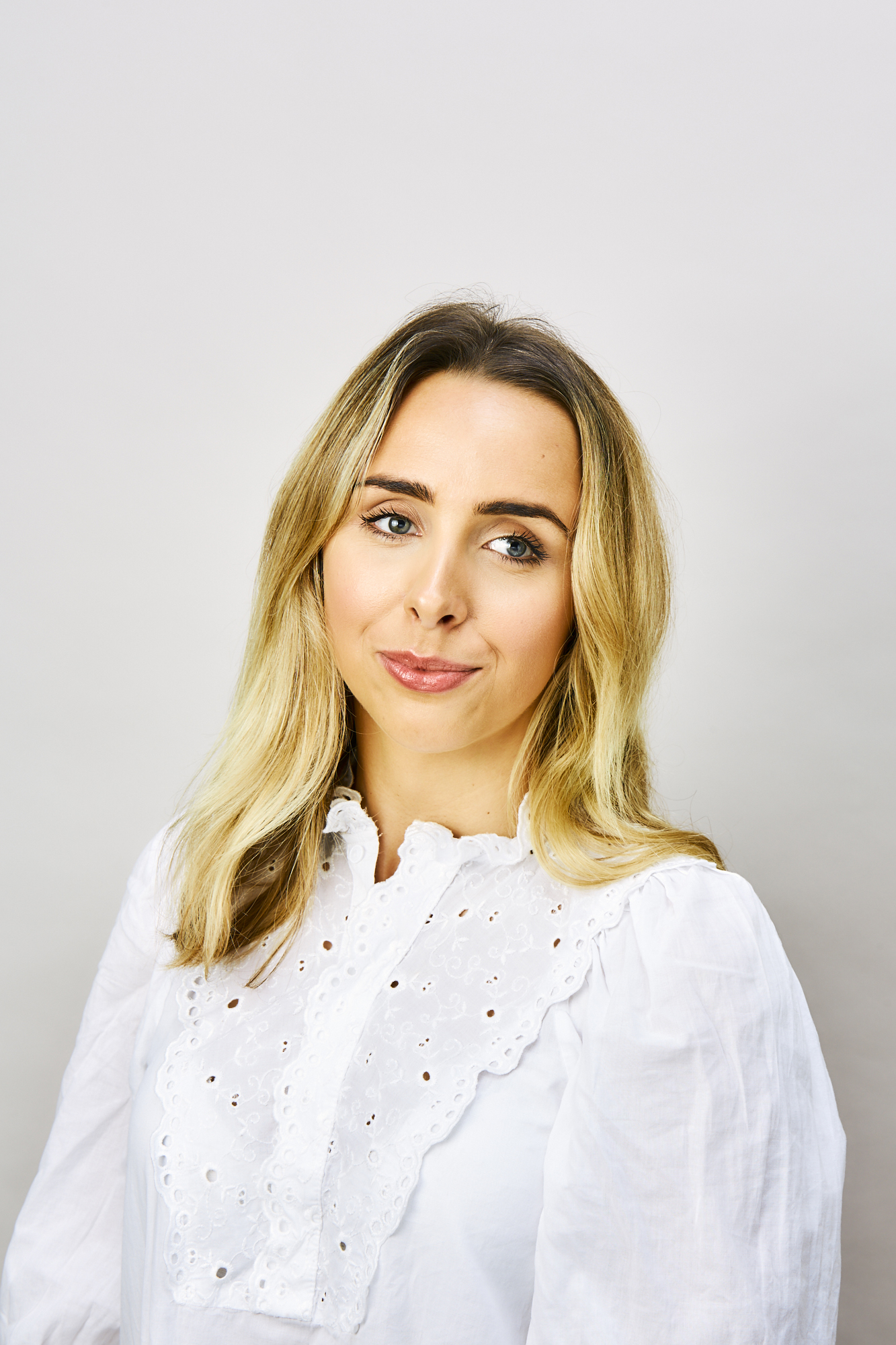
Emma Stoddart is a freelance beauty journalist who has worked for some of the UK’s top titles including NET-A-PORTER, Stylist and Grazia. Her experience covers both online and print, including producing editorial shoots with some of the industry’s biggest artists. Having tested many skincare products over the years, she also shared review insights for this guide to SPF moisturisers.

Dr Anjali Mahto is a consultant dermatologist and the founder of the Self London Clinic. She is also the author of The Skincare Bible: Your No-Nonsense Guide To Great Skin. With her years of experience in dermatology, she regularly tells patients of the importance of sun protection as well as recommending products in-clinic.

Dr Ifeoma Ejikeme is an experienced doctor and the founder & medical director of the Adonia Medical Clinic in London. She also regularly advises patients on the importance of sun protection and knows what to look for in a good product.
Ava Matthews is one of the founders of Australian sun protection brand Ultra Violette, whose products are known for their great textures and rigorously-tested, efficacious formulas.
Dr Sam Bunting is the founder of Dr Sam's, her eponymous skincare brand, which makes one of the moisturisers with SPF included in this guide. With expertise in cosmetic dermatology, she also practices on London's Harley Street.
Dr Emma Wedgworth is a London-based consultant dermatologist.
Hannah Collingwood-English is a cosmetic scientist, content creator and the author of Your Best Skin: The Science of Skincare.
Sign up to our free daily email for the latest royal and entertainment news, interesting opinion, expert advice on styling and beauty trends, and no-nonsense guides to the health and wellness questions you want answered.
Jess Beech is an experienced fashion and beauty editor, with more than eight years experience in the publishing industry. She has written for woman&home, GoodtoKnow, Now, Woman, Woman’s Weekly, Woman’s Own and Chat, and is a former Deputy Fashion & Beauty Editor at Future PLC. A beauty obsessive, Jess has tried everything from cryotherapy to chemical peels (minus the Samantha in Sex and The City-worthy redness) and interviewed experts including Jo Malone and Trinny Woodall.
- Maya SargentGraduate writer
- Lucy Abbersteen
- Emma Stoddart